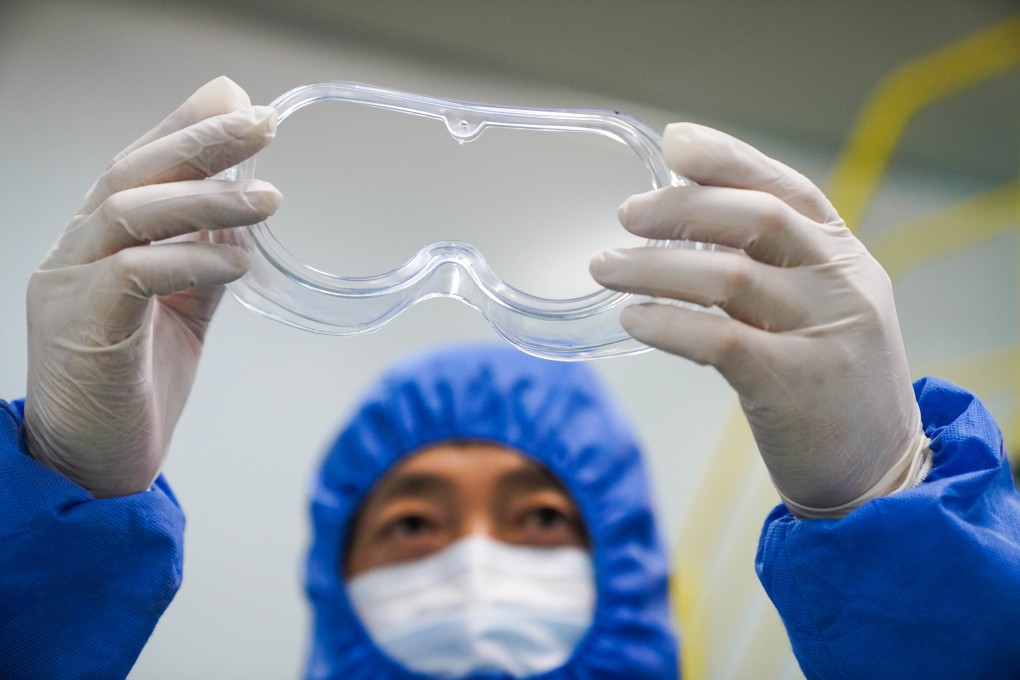University of Hong Kong study finds eyes are ‘important route’ for coronavirus, up to 100 times more infectious than Sars
- Researchers from HKU’s school of public health reveal the coronavirus is up to 100 times more infectious through the eyes and airways than Sars
- Study in The Lancet Respiratory Medicine says that explains ‘higher transmissibility’ of Covid-19, compared with the 2003 contagion

The eyes are an important route for the coronavirus into the human body, according to University of Hong Kong research which found the strain was up to 100 times more infectious than severe acute respiratory syndrome and bird flu in two facial orifices tested by the public health experts.
The team led by Dr Michael Chan Chi-wai, from HKU’s school of public health, became among the first researchers worldwide to provide evidence the coronavirus can infect humans through both entry points when it published its findings in the latest issue of The Lancet Respiratory Medicine.
“We culture tissues from the human respiratory tract and eyes in the laboratory and applied them to study the SARS-Cov-2, comparing it with Sars and H5N1. We found that SARS-Cov-2 is much more efficient in infecting the human conjunctiva and the upper respiratory airways than Sars, with virus level some 80 to 100 times higher,” Dr Chan said.
“This explains the higher transmissibility of Covid-19 than that of Sars. This study also highlights the fact that eyes may be an important route of SARS-CoV-2 human infection,” added Dr Chan.
Dr Chan said: “Although there are signs that the Covid-19 epidemic is getting more stable in Hong Kong, the situation elsewhere in the world is still serious. There are still many new cases reported every day in, say, Russia and Europe. We should not let our guard down.”